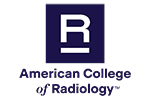Dementia
Dementia refers to a group of symptoms that affect memory, thinking, and social abilities and interfere with daily life. Dementia is a common medical diagnosis and includes different subtypes. These include Alzheimer’s disease, frontotemporal dementia (when nerve cells in the frontal and temporal lobes of the brain are lost), Lewy body disease (progressive dementia from protein deposits in brain nerve cells), vascular dementia (caused by lack of blood flow to a part of the brain), and mixed dementias. Different imaging tests are used in these subcategories. All are first evaluated by a neurologist followed by CT of the head or MRI of the brain without intravenous contrast.
If Alzheimer’s disease is suspected, an amyloid PET/CT scan brain (in which a chemical tracer or substance is injected into the brain that can show beta-amyloid plaques, a buildup of toxic proteins) or a fluorine-18-2-fluoro-2-deoxy-d glucose (FDG)-PET/CT brain (in which a radioactive glucose tracer is injected that shows metabolic activity in the brain) is usually appropriate as the next test.
For suspected frontotemporal dementia, FDG-PET/CT brain may also be appropriate. For suspected Lewy body disease, ioflupane single-photon emission CT (SPECT) (a special type of CT scan with radioactive isotope injected into the brain) or SPECT/CT brain (SPECT combined with CT) and FDG-PET/CT brain may be appropriate. For dementia due to idiopathic normal-pressure hydrocephalus (in which cerebrospinal fluid builds up in ventricles or interconnected fluid-filled chambers in the brain and compresses brain tissue), diethylenetriamine pentaacetate cisternography or hexamethylpropyleneamine oxime SPECT (imaging tests to visualize fluid flow in the brain) or SPECT/CT brain scan may also be appropriate.
For more information, see the Dementia page.
— By Raquel Weinberg and Kemi Babagbemi, MD. This information originally appeared in the Journal of the American College of Radiology.
This page was reviewed on December 15, 2021


